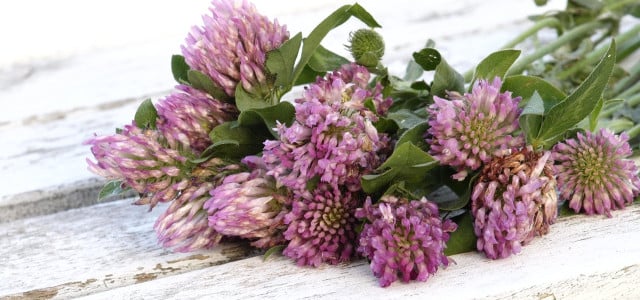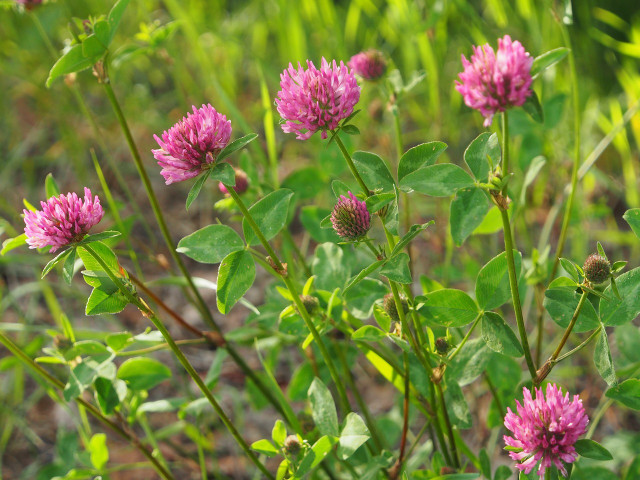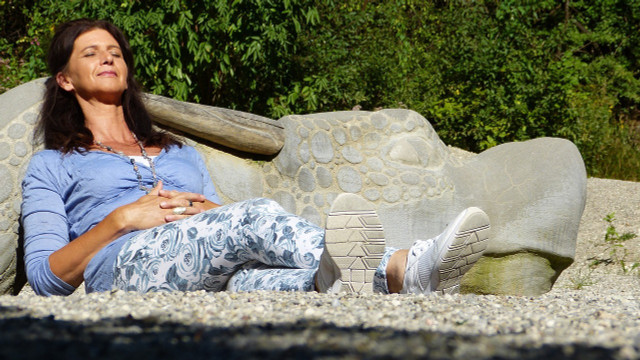
Red clover is an undemanding plant that is said to have a healing effect on various diseases. You can read here how the clover works and how it is used.
Red clover or meadow clover (Trifolium pratense) is a plant that has long been used in folk medicine. With distinctive crimson flowers, red clover is not only visually appealing, but is also valued for its potential health benefits.
In this article we take a look at the diverse effects and uses of red clover as a remedy.
effect of red clover

(Photo: CC0 / Pixabay / SirPoh)
Red clover is considered an ancient remedy. Due to its ingredients, it is said to have various health-promoting effects. In naturopathy, according to Healthline, it is often used as a remedy for symptoms associated with menopause, asthma, whooping cough, arthritis and even cancer. However, health experts are wary of the purported benefits of red clover for these and other ailments due to a lack of scientific evidence.
The clover contains vitamins (vitamins B1 and B3 as well as vitamin C) and minerals (magnesium, calcium and potassium) that play an important role in our well-being and our bodily processes.
However, according to Netdoktor, the isoflavones contained are primarily responsible for the alleged healing effect. These should make red clover a natural alternative to hormone therapy during menopause, which is often associated with symptoms such as sweating and hot flashes, as well as depressive moods and sleep disorders.
Red clover is said to be able to alleviate these symptoms because the isoflavones, which belong to the secondary plant substances, can act as phytohormones, or more specifically as phytoestrogens. This means that they bear a close resemblance to the structure of the hormone estrogen.
If the natural estrogen level drops during the menopause, the isoflavones are supposed to compensate for it and in this way reduce the physical and psychological complaints
According to Netdoktor, there are also indications that the isoflavones are said to be responsible for the alleged anti-cancer effect of red clover, since these plant substances trigger programmed cell death (apoptosis) and are said to be able to eliminate cancer cells.
Furthermore, clover is said to have a positive influence on bone, hair and skin health.
Effects of red clover not scientifically proven
Red clover is said to help against many ailments. Both the health portals Healthline and Netdoktor as well as the consumer advice center and the National Center for Complementary and Integrative Health (NCCIH) agree: Research into the effects of red clover on humans has not shown any clear benefits for any health condition.
For example, studies of red clover’s effect on menopausal symptoms like hot flashes and declining bone density have yielded inconsistent results, according to the NCCIH. According to Netdoktor, there are no clinical studies to date that certify that the medicinal plant has a cancer-preventing effect.
Controversial side effects of red clover

(Photo: CC0 / Pixabay / silviarita)
The secondary plant substance isoflavone influences the hormone level. It is repeatedly associated with problematic cell division, which can promote breast cancer.
Researchers suspect that the component genistein is a possible trigger for the development of cancer cells. However, this active ingredient is more likely to be found in soy. In red clover it is contained only in a small form.
The European Food Safety Authority concluded in 2015 that isoflavones have no harmful effects on menopausal women.
Application of red clover

(Photo: CC0 / Pixabay / 6689062)
If you have severe symptoms during menopause or if you have cancer, you should never trust that red clover will provide you with relief. If you should still consider eating red clover, there are a number of options:
-
red clover to eat. The flowers of the clover are edible and you can use them as an ingredient in salads or as a topping on soups. You can also grow sprouts from red clover seeds, which you can use as a side salad. This is how you can increase the variety of foods you eat. And a varied diet is important for a healthy gut.
-
red clover for drinking. You can also take the clover as a tea. Pour 1 teaspoon of the dried buds into 250 milliliters of boiling water. After ten minutes, strain the flowers again. You can drink up to four cups a day.
-
Red clover in capsules. Since the active ingredients in food supplements are highly concentrated and the possible long-term effects have not yet been sufficiently researched, the Federal Institute for Risk Assessment advises against taking them.
Read more on Techzle\.com:
- Fenugreek: Effect and application of fenugreek seeds
- Isoflavones: effects and risks of hormone-active plant substances
- Herbal supplements do not have to substantiate health claims
Revised by Annika Reketat